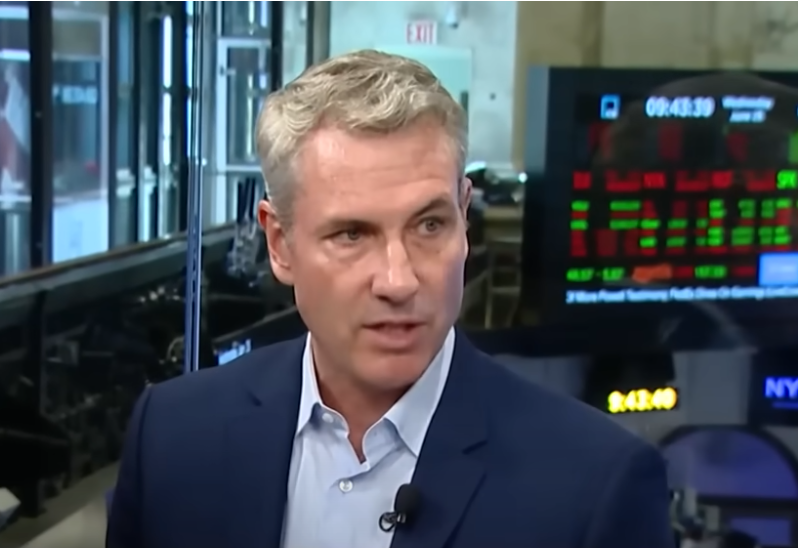Andy Byron, who was once commended for his strategic leadership at Astronomer, a rapidly expanding data infrastructure company worth $1.3 billion, has recently made headlines for a reason that goes well beyond technology. He reportedly earned between $469,000 and $690,000 a year, making him one of the highest-paid startup CEOs in the industry. For executives in charge of AI-focused projects, that number is not surprising, but it takes on extra significance when combined with performance-based bonuses and equity estimates that raise his net worth to between $50 million and $70 million.

In recent weeks, Byron’s sudden departure provoked heated discussion about the wider role of leadership behavior in contemporary tech companies, in addition to compensation. Byron was immediately put on leave following an incident at a Coldplay concert involving public affection with Kristin Cabot. Even extremely successful executives can be held responsible for their actions outside of corporate boardrooms, as this rare public reminder made clear. Only a day later, the board formally accepted his resignation.
| Attribute | Details |
|---|---|
| Full Name | Andy Byron |
| Position | Former CEO |
| Company | Astronomer |
| Company Valuation | $1.3 billion |
| Annual Salary Range | $469,000 – $690,000 |
| Bonus Compensation | Performance-based bonuses |
| Net Worth Estimate | $50 million – $70 million |
| Current Status | Resigned (July 2025) |
| Interim CEO | Pete DeJoy |
| Reference |
For a lot of people, the shift signified more than a shift in leadership. It demonstrated how brittle executive presence is in the high-stakes startup culture of today. The expectation to lead ethically and professionally extends to personal behavior, especially in private tech companies where valuations are skyrocketing and scrutiny is closely following. This was underlined in the astronomer’s official statement, which stated that leadership is supposed to set the bar for accountability and behavior.
Since then, cofounder and Chief Product Officer Pete DeJoy has taken over as interim CEO. His hiring has been well received, especially by internal teams that understand the value of continuity in unpredictable times. Leadership changes can be upsetting for startups going through growth stages, but Astronomer seems to have responded in a very well-balanced manner, continuing to operate while simultaneously restating its core principles.
Comparisons to other well-known tech CEOs who have resigned unexpectedly have also been rekindled by Byron’s departure. Uber’s Travis Kalanick and Better.com’s Vishal Garg, who are both renowned for spearheading explosive growth but also dealing with severe criticism, were compared. Even though Byron’s scandal was personal, Astronomer’s board responded quickly and decisively, which may indicate a change in how private companies handle issues that are sensitive to public perception.
In terms of money, his salary was comparable to that of other tech executives running unicorn-stage businesses. While not unprecedented, Byron’s base pay was moderately high when compared to data-driven CEOs in comparable markets. But when equity and performance-based incentives were added, he was able to move up into the top income range. This structure, which is especially advantageous to early investors, reflects the widely acknowledged compensation trend that leadership wealth is directly increased by company growth.
The original CEO of Astronomer, Ry Walker, provided a candid assessment of the situation. Walker characterized the transfer as “remarkably effective” in propelling business success and professionally advantageous, having given Byron the reins during the company’s turning point in 2019. His public statements emphasized that, up until recently, the team and investors had regarded Byron as a capable and strong leader.
The pay of leaders in medium-sized tech startups is coming under more and more scrutiny. Visionary leaders are becoming increasingly valuable as AI continues to take center stage in venture capital portfolios. However, as this incident shows, it can take more than spreadsheets and strategy to sustain internal morale and public trust. Culture has turned into money, and Byron’s exit shows how easily it can lose value.
Tech companies have handled scandals with differing levels of transparency over the last ten years. Astronomer may have established an especially creative precedent by deciding to be transparent about the leadership change. While many executives in similar roles discreetly drop out of press releases, the company decided to take a direct approach, indicating that it intends to develop resilience through both code and behavior.
Astronomer sits at the intersection of artificial intelligence, cloud computing, and digital transformation by utilizing advanced analytics and providing tools essential to contemporary data pipelines. Because of this, the leadership dynamics of the company are important to partners and clients as well as employees, who view the company as a highly effective link in their own ecosystems. Internally, a top goal is to change leadership without impeding progress. It is anticipated that DeJoy’s product expertise will offer the required continuity while the board looks for a permanent CEO.
Which businesses prosper in the upcoming years will probably depend on how moral leadership and technological influence interact. This moment is both a reckoning and an opportunity for astronomers, whose value is still rising. If managed properly, the business can come out stronger—positioned as a model of contemporary corporate responsibility as well as a supplier of technology.
Performance failure was not the reason Astronomer decided to split from Byron. Ironically, his departure occurs during a period of exceptionally robust growth, indicating that leadership conduct is still more important than even highly dependable business performance. The focus on behavior increases as executive compensation rises, particularly when private companies are valued higher than many publicly traded companies.
Investor reaction has been measured but cautiously optimistic since the start of this transition. According to analysts, the leadership change won’t harm long-term growth as long as the product roadmap is followed and customer trust is maintained. The message is especially clear for early-stage startups that are paying close attention: superior leadership demands not just quarterly metrics but also personal integrity and a culture that is clearly upheld.
